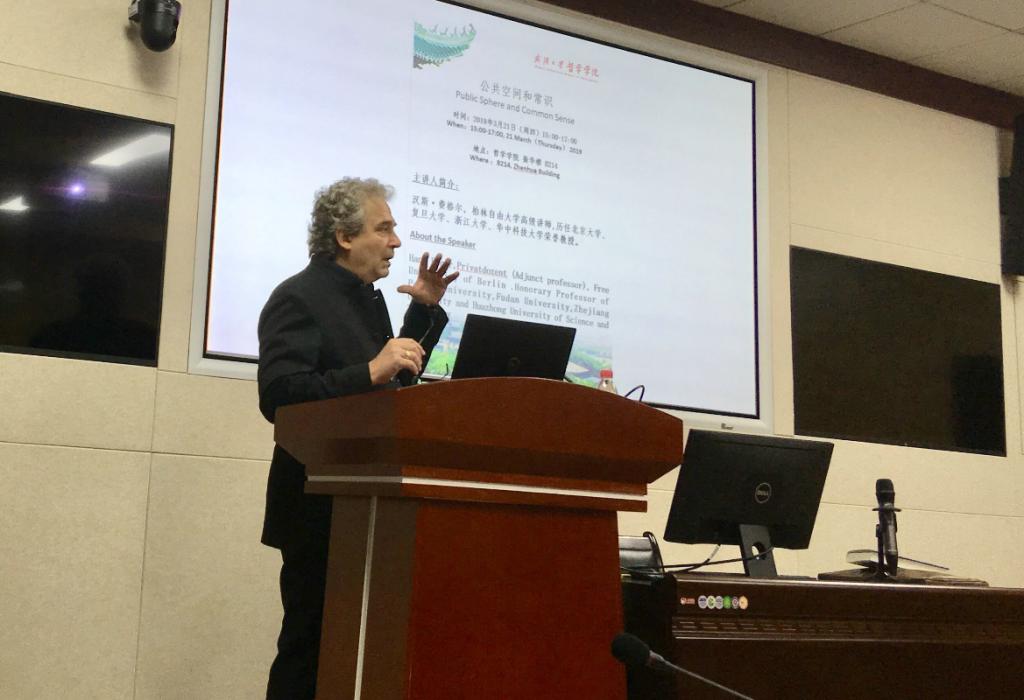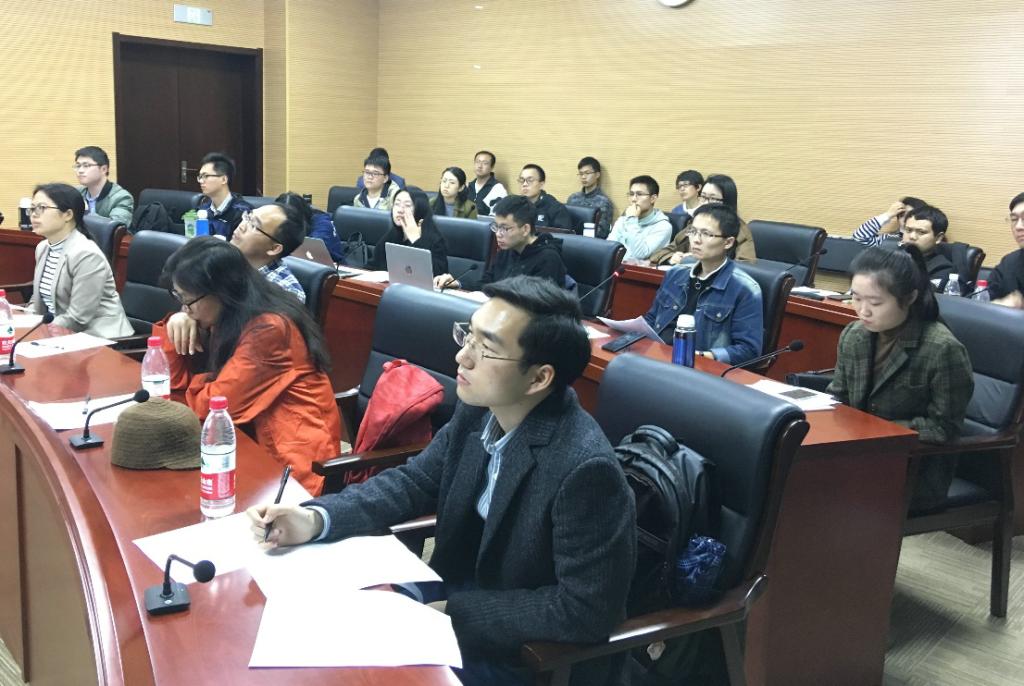On 21 March, 2019 (15:00-17:00), Professor Hans Feger gave a lecture on “Public Sphere and Common Sense” at the School of Philosophy, Wuhan University. Prof. Feger is (adjunct) Professor of the Institute of Philosophy and the Institute of German Philology at the Free University of Berlin (Freie Universität Berlin). He has been teaching as honorary professor in Peking University, Fudan University, Zhejiang University and Huazhong University of Science and Technology.

In his opening remarks, Prof. Feger mentioned his 20-years acquaintance with Chinese scholars and Universities, as well as a long history of cooperation between the Free University of Berlin and Chinese Universities, and he was very glad that Chinese and German scholars were able to maintain a continuous communication. In his speech, Prof. Feger mentioned in details the Germany-China alumni network for humanities and social science researchers (DCHAN), which he establishes and manages under the Federal Ministry of Education (BMBF). It organizes joint conferences, colloquia and lectures. His goal is to create a common platform for the cooperation among humanities projects that are related to China, in particular to improve the contacts between Chinese Alumni who studied in Germany, and German scholars whose research is related to China and to make use of the opportunities from the existing co-operations and contacts with China as systematically as possible.
The lecture started with a clarification of the concept of Enlightenment. Prof. Feger provided two different interpretations: the external, imposed emancipation and the spontaneous self-legislation. The former would eventually lead to infinite regression of emancipation. Thus, we need to adopt the latter, which is also known as the Kantian understanding of Enlightenment. Prof. Feger emphasized that the contradiction of external Enlightenment and the need to appeal to self-legislation were also clearly manifested in the May Fourth Movement in China, in which Enlightenment was treated as a Western cultural ideal imposed on China.
He continued his talk by pointing out the question of the “pre-condition” of self-legislating Enlightenment, and stated that it has to be solved within a public sphere. He introduced Kant’s distinction between the private and public use of reason in his essay “An Answer to the Question: What is Enlightenment?” to demonstrate the need of a non-political public sphere, where everyone could have open spaces to express and is free to use reason for arguments and debates. In Kant, this seemingly non-political, or even sometimes antagonistic “public opinions” form themselves in the public sphere, and might eventually leads to political consensus.

Prof. Feger’s final argument was about the foundation of public sphere. He adopted Hannah Arendt’s aesthetical interpretation of Kant’s political thought, and laid the foundation on “common sense”— a term that is used by Kantians to describe the basis of aesthetical appreciation. Thus, like Arendt, Prof. Feger emphasized the singularity, exemplarity and normativity of judgments in public sphere. And in his view, whether public decision could be made depends on the universal receptivity formed by arguments in open debates as such.
Prof. Feger finished his talk with the conclusion that “people falling silent,” i.e., because of a lack of courage described by Kant, was the greatest impediment for the Enlightenment. The lecture ended with a free discussion. Prof. Feger discussed various topics with attendant teachers and students, about the impasse between political power and public sphere, the common sense among family members, and the difference between common sense and feeling, etc.
(Written by YAN Linfeng, Photo by CHEN Jie)



